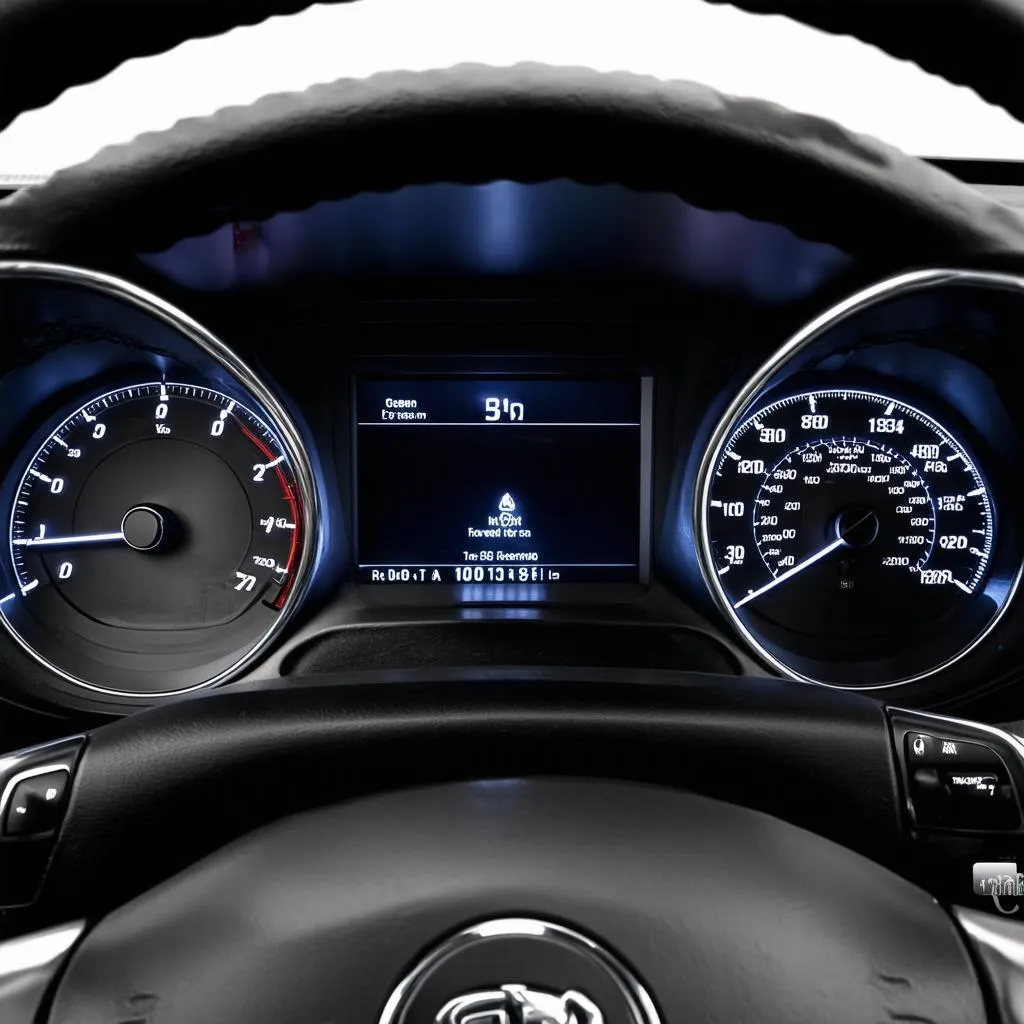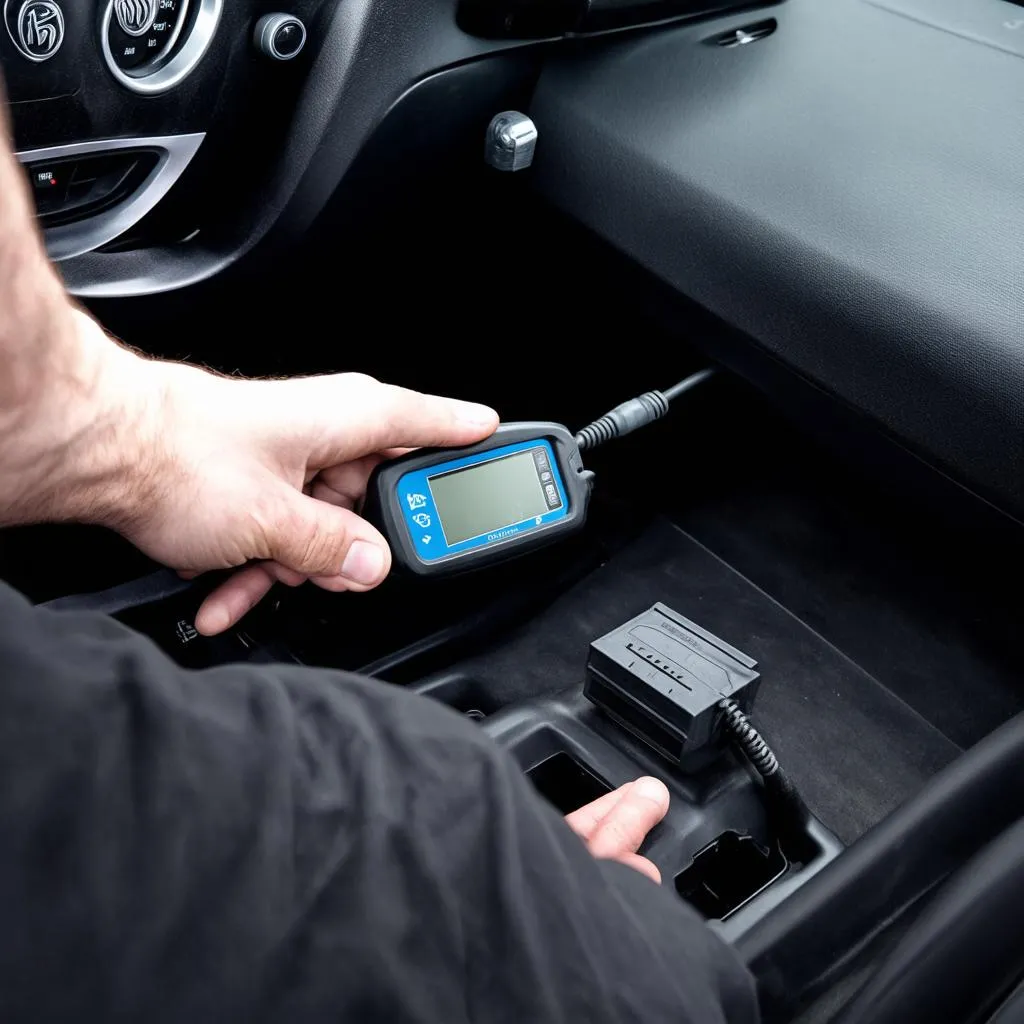Imagine this: You’re cruising down Sunset Boulevard in your trusty 2009 Buick Lucerne, the California sun warming your face, when suddenly – bam! – that dreaded Check Engine light pops up on your dashboard. Your heart sinks. What does it mean? Is it something serious?
Don’t panic! That little orange glow is simply your car’s way of telling you it needs a bit of attention. Think of it as your Lucerne whispering, “Hey, something’s not quite right here. Let’s get it checked out, yeah?”
This guide will walk you through understanding those cryptic OBD warnings, specifically for us 2009 Buick Lucerne owners. We’ll demystify the jargon, explore common issues, and empower you to get your Lucerne back to its smooth, comfortable self.
Understanding the Language of Your Lucerne
Your Buick Lucerne, like most modern vehicles, has an On-Board Diagnostic system (OBD). This system acts as your car’s internal computer, constantly monitoring various systems and components. When something seems off, the OBD system triggers that Check Engine light and stores a specific code. This code is like a secret message, telling mechanics what needs attention.
What Your OBD Warning Light Means (and Doesn’t Mean)
A flashing Check Engine light usually indicates a more serious issue that needs immediate attention. Think of it as your car shouting, “Pull over! Now!” This could be anything from engine misfires to a failing catalytic converter.
A steady Check Engine light, while less urgent, shouldn’t be ignored either. It suggests a potential issue that needs investigation. It could be something as simple as a loose gas cap or as complex as a faulty oxygen sensor.
Important Note: While a glowing Check Engine light might make you think of costly repairs, remember it doesn’t always mean disaster. Often, the fix is simpler than you’d expect.
Common OBD Warnings in 2009 Buick Lucernes
Here are some frequently encountered OBD codes in 2009 Buick Lucernes, along with potential causes:
-
P0420 (Catalyst System Efficiency Below Threshold): This often points to a failing catalytic converter, but it could also be caused by a faulty oxygen sensor or even a small exhaust leak.
-
P0171 (System Too Lean Bank 1): This suggests your engine isn’t getting enough fuel, which could stem from a problem with the mass airflow sensor, oxygen sensor, or a vacuum leak.
-
P0300 (Random/Multiple Cylinder Misfire Detected): This indicates one or more cylinders in your engine aren’t firing properly, potentially due to worn spark plugs, bad ignition coils, or a vacuum leak.
-
P0442 (Evaporative Emission System Small Leak Detected): This usually signifies a small leak in the evaporative emissions system, often caused by a loose or damaged gas cap, a faulty purge valve, or a leak in the fuel tank or lines.
Taking Action: What to Do When Your Check Engine Light Turns On
-
Don’t Panic: Remember, a Check Engine light doesn’t always mean a catastrophic failure. Stay calm, assess the situation (flashing or steady light?), and proceed accordingly.
-
Check Your Gas Cap: It might sound silly, but a loose or missing gas cap is a surprisingly common culprit behind OBD warnings, especially the P0442 code. Ensure your gas cap is securely tightened.
-
Get the Code Read: Head to a trusted mechanic or use an OBD-II scanner (available at most auto parts stores) to read the specific code triggering the light. This code will provide valuable clues about the issue.
-
Research the Code: Once you have the code, do some research online (on reputable automotive websites) to understand its meaning and potential causes.
-
Consult a Professional: While some fixes might be DIY-friendly, it’s generally advisable to consult a qualified mechanic, especially for complex issues. They can accurately diagnose the problem and recommend appropriate repairs.
 Dashboard of a 2009 Buick Lucerne
Dashboard of a 2009 Buick Lucerne
FAQs: Your Burning Questions About 2009 Buick Lucerne OBD Warnings
Can I still drive my car with the Check Engine light on?
It depends. If the light is flashing, pull over immediately and seek professional assistance. If it’s steady, you might be able to drive for a short period, but it’s crucial to get it diagnosed and addressed promptly.
How much does it cost to fix a Check Engine light issue?
The cost varies greatly depending on the underlying problem. A loose gas cap fix might be free, while a catalytic converter replacement could cost upwards of $1,000.
Can I prevent future Check Engine light occurrences?
Regular vehicle maintenance, including oil changes, spark plug replacements, and inspections, can go a long way in preventing OBD warnings and keeping your Lucerne running smoothly.
Related Questions:
- What are the most common problems with a 2009 Buick Lucerne?
- How reliable is the 2009 Buick Lucerne?
- Where can I find a reliable mechanic specializing in Buick vehicles?
 Mechanic connecting an OBD-II scanner to a 2009 Buick Lucerne
Mechanic connecting an OBD-II scanner to a 2009 Buick Lucerne
Need Expert Help With Your Buick Lucerne’s OBD Codes?
We’re here to help! Our team of automotive experts is just a message away. Contact us on WhatsApp at +84767531508 for 24/7 support with diagnostic tools and expert advice on tackling those pesky OBD warnings.
Keep Your Lucerne Running Smoothly
Remember, a little understanding goes a long way. By being proactive and informed about your 2009 Buick Lucerne’s OBD system, you can address potential issues promptly and enjoy many more miles of comfortable cruising.
Don’t forget to share your experiences with your Buick Lucerne and any tips you have for fellow owners in the comments below!
